


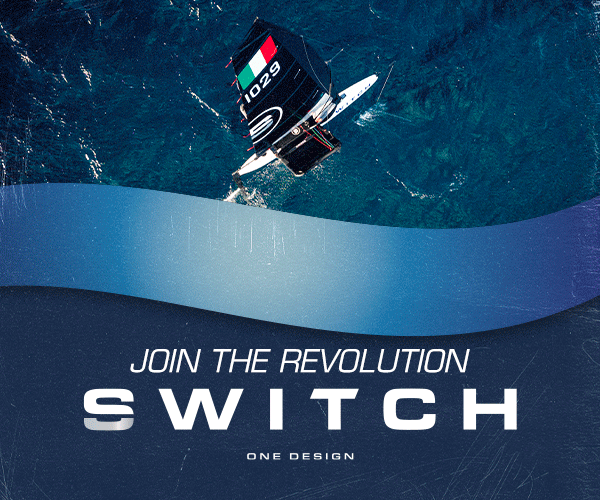



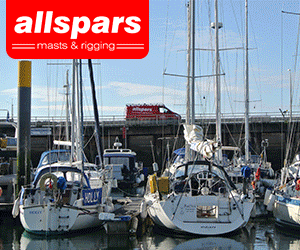
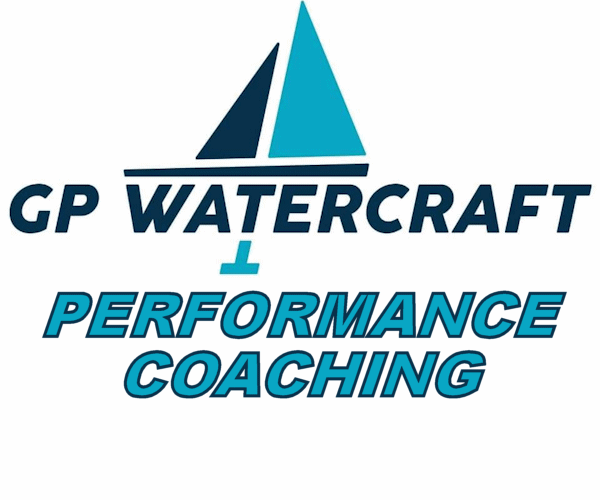

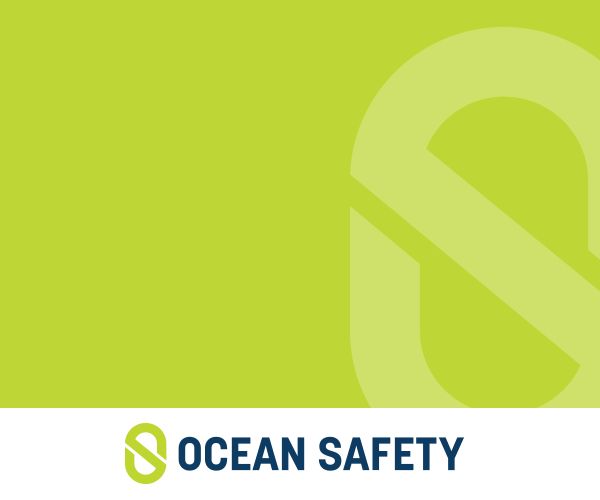

Boats for sale
| Laser 28 - Excellent example of this great design Hamble le rice |
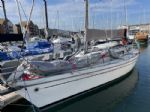 |
| Laser 140101 Tynemouth |
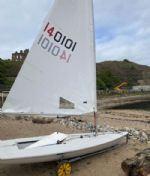 |
| Laser 161752 Tynemouth |
 |
List classes of boat for sale |
PY Numbers for 2017 |
Post Reply 
|
Page <1 1516171819 25> |
| Author | |||
transient 
Really should get out more 
Joined: 21 Aug 12 Online Status: Offline Posts: 715 |
 Post Options Post Options
 Quote Quote  Reply Reply
 Topic: PY Numbers for 2017 Topic: PY Numbers for 2017Posted: 08 Mar 17 at 5:56pm |
||
Thanks for that info Simon. Quite frankly I'd have been happy with maybe 4 or 5 (or whatever) different lists for general types of water from which clubs could choose. I look forward to the results with interest  Edited by transient - 08 Mar 17 at 5:58pm |
|||
 |
|||
Chris 249 
Really should get out more 

Joined: 10 May 04 Online Status: Offline Posts: 2041 |
 Post Options Post Options
 Quote Quote  Reply Reply
 Posted: 09 Mar 17 at 12:05am Posted: 09 Mar 17 at 12:05am |
||
|
They tried complex adjustments for wind angles, strengths and tides with IMS yachts. It didn't really work out. Incidentally, years ago there was bitter debate about the IMS rule's Velocity Prediction Programme's measurement of the effect of volume about 2/3 of the way aft. Some very well qualified people (such as the Farr office) were adamant that the VPP over-estimated how much adding more volume in that area would slow a boat down. Many boats were pulled out of the water, de-rigged, rolled upside down and rebuilt in that area, which was a costly little exercise. On the other hand, the guys from Judel/Vrolijk said that the VPP was simply the realistic modelling of the Delft series (IIRC) of tank testing and that all the other designers had been mislead by their own VPP codes. When you have highly qualified naval architects and VPP creators arguing bitterly and inconclusively about the accuracy of a rating system that was created and run at vast cost (the initial system was only made possible by a donation from a US tech gozillionaire) then it is more evidence that no one can realistically run a realistic rating system for dinghies, which have much more complex and much less studied dynamics. The cats are simpler to rate and their measurement system means that if you sail certain classes you know that you are at a significant disadvantage against newer boats of a similar design. It also means that you have boatbuilders adding weight in order to get their boats to rate better. It's ironic that the reality of a system like the one Grumpf advocates is that it ends up creating heavier boats, something that he hates. Edited by Chris 249 - 09 Mar 17 at 1:21am |
|||
|
sailcraftblog.wordpress.com
The history and design of the racing dinghy. |
|||
 |
|||
Rupert 
Really should get out more 
Joined: 11 Aug 04 Location: Whitefriars sc Online Status: Offline Posts: 8956 |
 Post Options Post Options
 Quote Quote  Reply Reply
 Posted: 09 Mar 17 at 7:48am Posted: 09 Mar 17 at 7:48am |
||
|
You can make things favour light weight boats, but then they break a lot.
|
|||
|
Firefly 2324, Puffin 229, Minisail 3446 Mirror 70686
|
|||
 |
|||
iGRF 
Really should get out more 
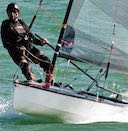
Joined: 07 Mar 11 Location: Hythe Online Status: Offline Posts: 6499 |
 Post Options Post Options
 Quote Quote  Reply Reply
 Posted: 09 Mar 17 at 10:04am Posted: 09 Mar 17 at 10:04am |
||
|
I probably haven't made it exactly clear how I'd see 'my' system working but here goes.
The 'Rating' could be two part, centred on measurements based partly on Peakys formula and partly on my own additions of sail area v crew weight, The Laser fixed at 1000, the second part of the rating would indeed be based on weight, but a crew weight/skill number with Scratch at it's lowest. In say 3 - 5 bands starting at entry level and progressing through intermediate, club winner, nationals winner and internationals winner at scratch. The better being the lighter and the lighter obviously speeds up the handicap. So taking the Laser 1, It's 'rating would be made up from the length, beam, weight sail area and the optimal crew eight of 70 kgs which rates it at say the value of 1090 old money. If you fall into a Category A sailor that is you have or are still capable of winning international events then you ride it upto -10, Category B (nats winner) sailors sail scratch, Category C sailors say (top ten nationals Club race winners) get upto + 10 and Category D and or National Average get around 20 which can vary according to national trends, Category E (Entry level get upto 30). Your task then Jim should you choose to accept it, is to work on your handicap which can reduce in increments, and this is the bit that could be fiddled with to everyones hearts content without messing with everyones mental logic of the bloody boats getting faster or slower when they don't. Just set the National Average bit of the handicap where your data dictates and folk can either choose to sail it or apply their own Handicap (with the view to improving personal status as we'd all like to). Edited by iGRF - 09 Mar 17 at 10:22am |
|||
 |
|||
Guests 
Guest Group 
|
 Post Options Post Options
 Quote Quote  Reply Reply
 Posted: 09 Mar 17 at 10:37am Posted: 09 Mar 17 at 10:37am |
||
|
I like personal handicaps. It takes out all the horrendous false pretense of actually knowing the performance of each boat (potential or average) and focuses on an individual trying to improve.
Obviously you still have an issue in tide and you still have an issue with some boats performing better in different conditions. But, crucially, the answer will never be to swap boats, it will be to improve yourself. However, iGRF, what you will find is that a nationals winner will be indistinguishable from a international winner in a club racing context. Even mid fleet boats at a nationals, in a club race, will be very close to a nationals winner. I'd say anyone who can win a decent open race (25+ boats) or finish in top 30% of a decent open event (25+) boats would all have to be rated as scratch ( i ran a personal handicap for the RS200s at HISC and calculated their rating). What separates these boats in big fleet events is that mistakes as punished by dirty air and reduced strategy options down the fleet. This doesn't happen as much in club racing.
|
|||
 |
|||
jeffers 
Really should get out more 

Joined: 29 Mar 04 Location: United Kingdom Online Status: Offline Posts: 3048 |
 Post Options Post Options
 Quote Quote  Reply Reply
 Posted: 09 Mar 17 at 11:00am Posted: 09 Mar 17 at 11:00am |
||
Now that is a key comment. the winter series events were an exercise in traffic management if you were mid to slow in your fleet/PY grouping. This is what opened up the gaps abd exposed areas to focis on for many. Anyway...shall we get back to whinging about PY now?
|
|||
|
Paul
---------------------- D-Zero GBR 74 |
|||
 |
|||
iGRF 
Really should get out more 

Joined: 07 Mar 11 Location: Hythe Online Status: Offline Posts: 6499 |
 Post Options Post Options
 Quote Quote  Reply Reply
 Posted: 09 Mar 17 at 11:17am Posted: 09 Mar 17 at 11:17am |
||
That depends on the club, take my two options one a sea club inevitably running a fixed start line off a transit with a heavily biased Port end impossible to cross on starboard, or a small lake that sets a very tight line that maybe only half the fleet could even get on. Give me a 200 boat/board line with an inevitable sag in the middle every time. As I'm sure you're aware there's almost a book that could be written on start line tactics alone, but the scratch guys will usually always get a good start which is what makes them scratch they know the start is 75% of most races. That 'Scratch' handicap could also be made to vary -1 to minus 7 to minus 10. Just as the plus handicap could go up in 1 point increments, personally if by travelling to some big handicap events they'd count to reduce/increase my handicap I'd probably go, it would be nice to know after ten odd years my handicap had gone from 20 down to 15, something I'd personally take pride in as I'm sure other competitive types would. The handicap system would then become inclusive rather than exclusive something we could value rather than decry. |
|||
 |
|||
Guests 
Guest Group 
|
 Post Options Post Options
 Quote Quote  Reply Reply
 Posted: 09 Mar 17 at 12:00pm Posted: 09 Mar 17 at 12:00pm |
||
|
1. The PY scheme is not 100% accurate.
2. The PY scheme will never be 100% accurate. 3. The PY scheme works best when applied across a long series. 4. The PY scheme is not very transparent.* 5. The PY scheme rates the relative performance of boats** 6. The PY scheme could be made more accurate, but would take a lot of validating and effort. 7. The 1/1000 resolution suggest a level of accuracy that is unachievable. 8. The concept of local adjustment is deeply flawed. a. It is a huge administrative burden for each club to tweak numbers. b. Individual clubs have very little data to make such tweaks (risk of personal handicapping). c. There is no guidance on how to do this objectively. d. Lack of consistency between similar clubs. *It is not clear from material published by the RYA how the numbers are calculated - which results are excluded, what kind of averaging is used, are the changes damped/filtered, are there any human checks and balances on the numbers? etc, etc. ** Take two boats. Initially it is thought that both have equal performance and so the PY of both is set at 1000. Over time, it becomes apparent that Boat A is 1% quicker than Boat B. There are a number of ways the PY can be altered to reflect this – 990 & 1000, 995 & 1005, 1000 & 1010, or anything in between. Looking at the last couple of years RYA PY data, it seems that for every class that drops there is almost another one that rises, which suggests that in this simple example the RYA scheme would propose something like 995 & 1005. The implications of this are many and subtle. Most obviously, a rise in PY does not necessarily mean that the class has gotten slower in absolute terms, which is counter intuitive. Secondly, it makes local adjustments harder (suppose the RYA have adjusted the numbers to 995 & 1005, but at my club we believe they should race off the same number, due to my local conditions. Should make them both 995, 1000, or 1005? This decision matters very much to Boat C, who sails off 1010. Thirdly, it makes benchmarking across clubs very difficult – Club X can't use Club Ys Aero 7 number unless it uses all their other numbers. I would like to ask that the PYAG consider the following suggestions: 1. Put a document on the RYA website explaining how the numbers are calculated. 2. Reduce the resolution of the numbers – round numbers to the nearest 4 or so. 3. Adjust the way the relativity is used, so that only classes that have actually gotten slower in absolute sense (or were previously harshly handicapped) get a PY increase. Obviously there are not many classes that evolve to become slower. 4. Find ways to reduce the burden and onus on clubs to alter numbers. 5. Publish the historic PY numbers of classes over the years, so that the relative effect of changes can be better appreciated. 6. Have a different, and transparent, method for allocating (temporary) numbers to new classes – it should not be in the hands of the manufacturer/class to propose a number. At the end of the day, it is not about having a more accurate scheme. It is about having a fair and workable scheme that encourages boats to go racing. |
|||
 |
|||
Guests 
Guest Group 
|
 Post Options Post Options
 Quote Quote  Reply Reply
 Posted: 09 Mar 17 at 12:11pm Posted: 09 Mar 17 at 12:11pm |
||
|
Sorry, should have been clearer, but of course you're both correct, handicap races can be crowed: My point is, how crowded it is for any individual isn't often a product of how well they sail (unless part of a big class within a larger handicap event).
In handicap racing, whilst there are often other boats around, there often aren't as many battling constantly for the same space. Often the boats you interact with are faster or slower, so it becomes about of getting past them quickly, or letting them past quickly. However, whether you get a good start or a bad start you'll still have those situations to contend with. Example: In a Wednesday evening race I can get the best start possible. But being one of the slower boats in my start, instead of being rewarded with clear air to extend away, I soon have just as much traffic (or more) around me as a 200 sailor who didn't have as good a start. Yes, there is still skill in getting past those boat, however, the interference from other boats is more uniform across the fleet. The amount of disruption you encounter in a handicap race is more to do with luck and how the fleet / flights are structured rather than skill. It is therefore harder to distinguish between sailors who are closely matched. The factor of getting buried in a fleet doesn't exaggerate differences in ability, it just blurs them with another element of luck. For example there are lots of RS200 sailors at HISC who I have really close races with, finishing just seconds apart. But in a large regatta those 5 seconds lost off the line leaves them buried in the fleet and they finish several minutes behind. It's not because they're suddenly not as good a sailor, or I'm suddenly much better, or even that we're comparatively better/worse big fleet sailors: it's just because the fleet race scenario exaggerates the small differences. So what I think is, although sailor A may regularly beat sailor B at nationals and internationals by 20-30 places, you'll find them hard to separate them on handicap at the club. So I'd think most sailors above decent club level / open standard would have to race off scratch. I'd rather my club just did fleet racing, and personal handicap racing. Fleet racing for the purists and personal handicap to those improving.
Edited by mozzy - 09 Mar 17 at 3:33pm |
|||
 |
|||
davidyacht 
Really should get out more 
Joined: 29 Mar 05 Online Status: Offline Posts: 1345 |
 Post Options Post Options
 Quote Quote  Reply Reply
 Posted: 09 Mar 17 at 12:17pm Posted: 09 Mar 17 at 12:17pm |
||
|
In my experience it is easier to chase than be chased
|
|||
|
Happily living in the past
|
|||
 |
|||
Post Reply 
|
Page <1 1516171819 25> |
| Forum Jump | Forum Permissions  You cannot post new topics in this forum You cannot reply to topics in this forum You cannot delete your posts in this forum You cannot edit your posts in this forum You cannot create polls in this forum You cannot vote in polls in this forum |
Bulletin Board Software by Web Wiz Forums® version 9.665y
Copyright ©2001-2010 Web Wiz
Change your personal settings, or read our privacy policy
Copyright ©2001-2010 Web Wiz
Change your personal settings, or read our privacy policy











 Printable Version
Printable Version Delicious
Delicious Digg
Digg Facebook
Facebook Furl
Furl Google
Google MySpace
MySpace Newsvine
Newsvine reddit
reddit StumbleUpon
StumbleUpon Twitter
Twitter Windows Live
Windows Live Yahoo Bookmarks
Yahoo Bookmarks Topic Options
Topic Options